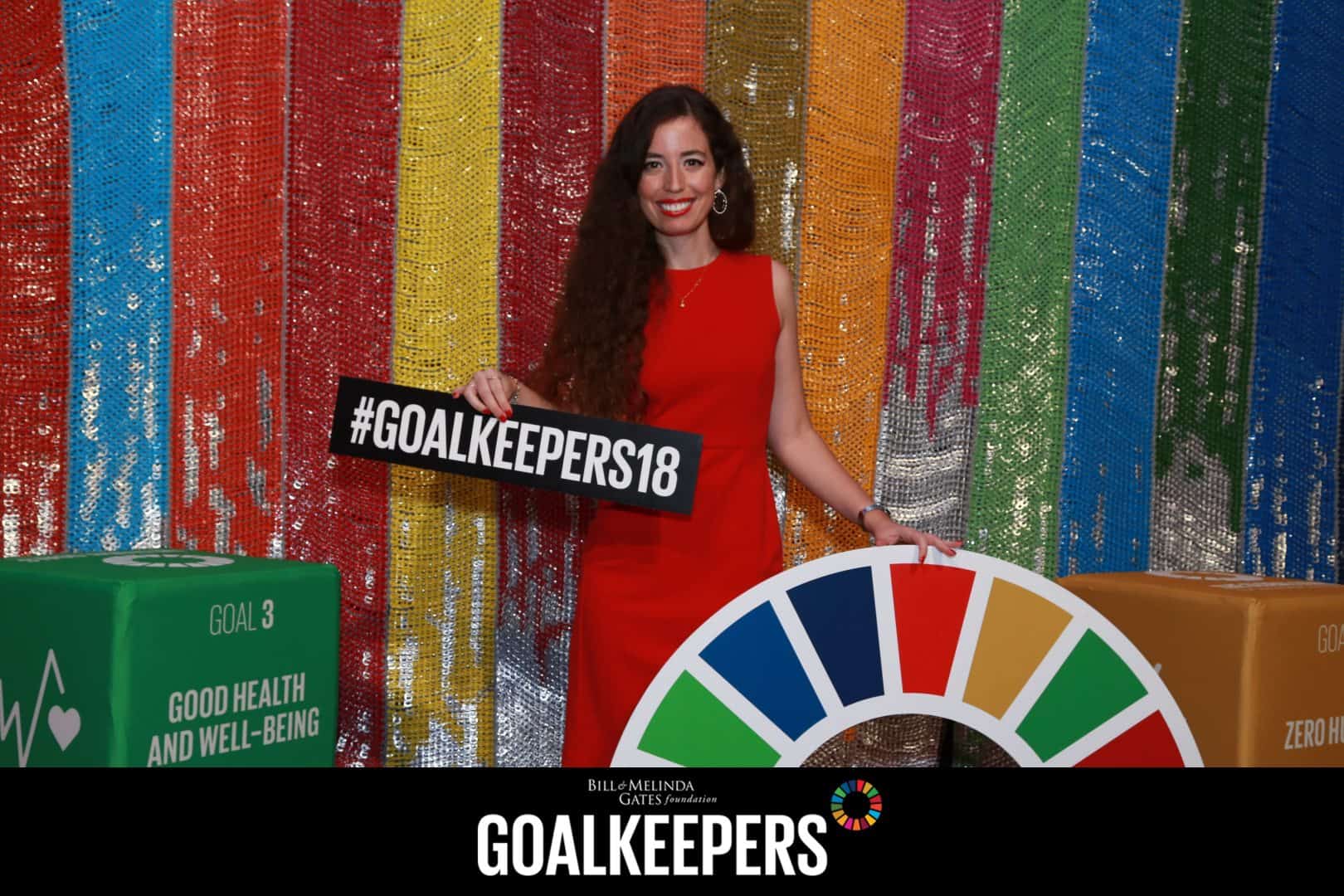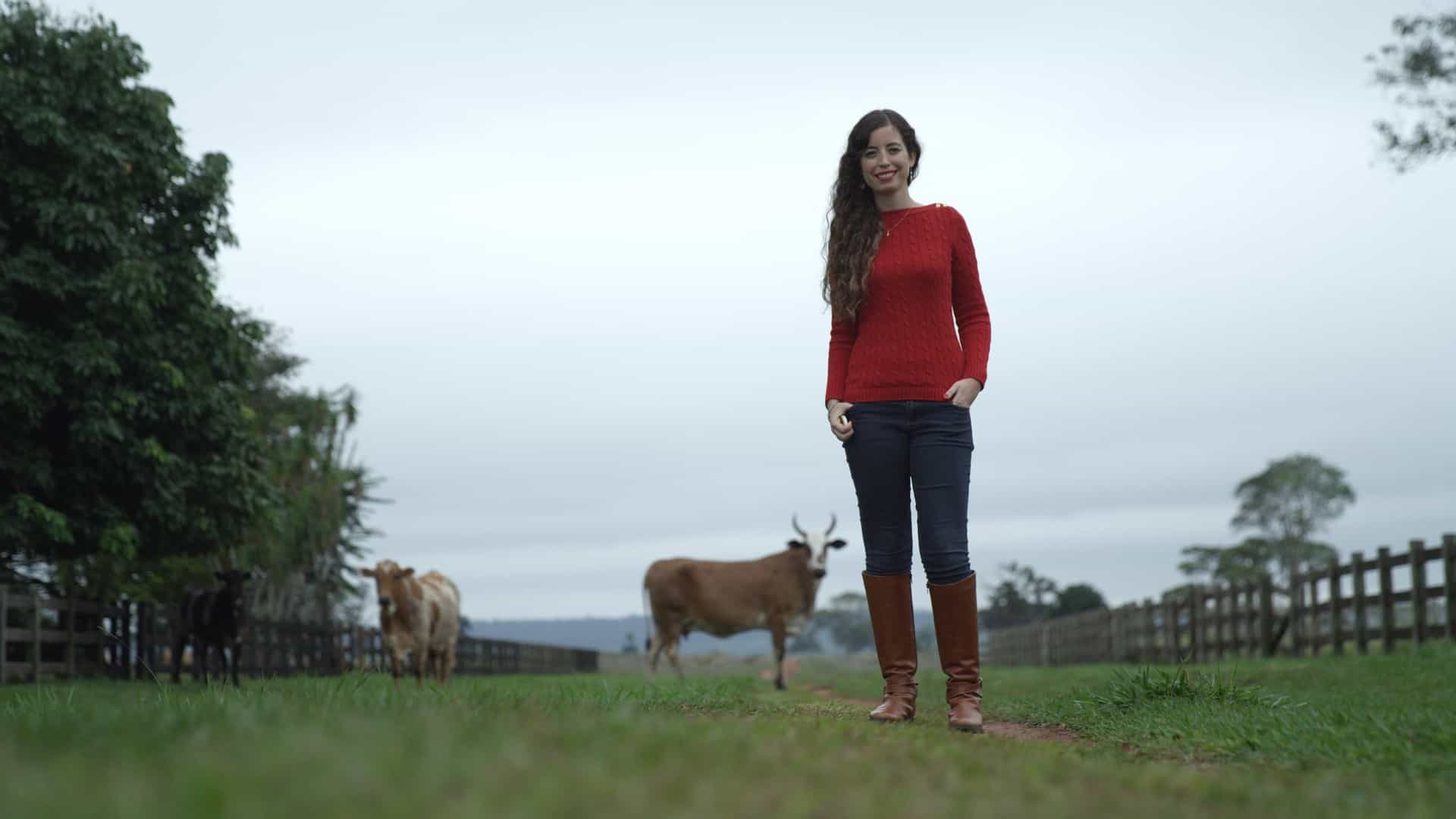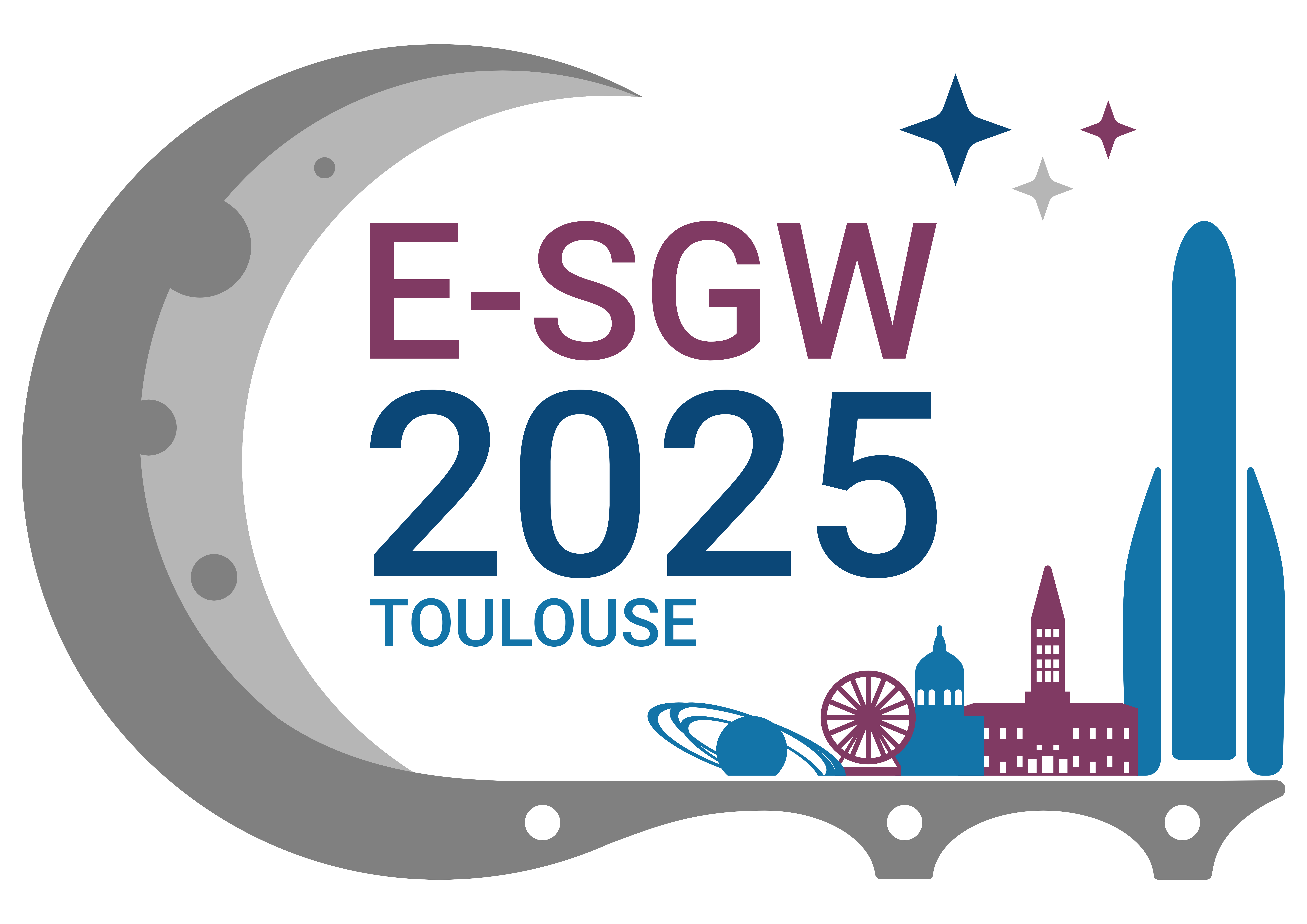“SGAC has been crucial to paving the road for the new generation”
An interview with Victoria Alonsoperez on SGAC, space, and the Sustainable Development Goals
By Carlos Mariscal and Maxim Mommerency
Está leyendo la versión inglesa de esta entrevista. Por la versión española, haz clic aquí.
It’s been almost three years since you left the function of co-chair and almost a year since you left SGAC as an advisory member. How do you look back at your time at SGAC?
I completely loved my time at SGAC, I think that it was a great journey for me. I started as National Point of Contact (NPoC) of Uruguay, then I went to being Regional Coordinator for South America, later Chair and then an advisory role, so it’s been great. SGAC has been an organisation that opened so many doors. I remember the first time that I actually got to know SGAC: it was in 2009, when I got the IAF youth grant (now known as the Emerging Space Leaders Award) and I got to go to South Korea and, as part of the grant, the Space Generation Congress.
The second I got to SGAC it was like a dream come true. I met so many people that had the same passion, the same interests as I did, which was space. Uruguay doesn’t have a space industry, so it was very complicated to be able to talk about space without being laughed at or mopped, so going to Space Generation Congress really was amazing for me. I got to know so many people, all of the people I met there are still my friends. I definitely look back at my years at SGAC and I think it’s been a great journey and a great experience and I’m very grateful to the organisation.
About eight months ago, you were appointed as a Young Leader for the SDGs by the UN, and as a Young Global Leader by the World Economic Forum last March. What are your responsibilities in these roles?
As a Young Leader for the Sustainable Development Goals (SDGs) I work to engage young people and further initiatives to support the UN 2030 agenda for sustainable development. You know the United Nations has set up some goals, they’re 17 goals that have to be achieved by 2030. This is very important to preserve our planet and have better living conditions for everyone. So, my role there is to do outreach about the SDGs, work on projects that have an impact and support the UN 2030 agenda and in particular, the Youth 2030 initiative. I think that the agenda will only be able to be achieved if we all collaborate and specially with the young population, which is made out of 1.8 billion people between the ages of 10 to 24 years old.
The Young Global Leaders (YGL) Program is a five year program wheduring which I engage with other YGLs to enlarge the impact that we are already creating with our projects, but at the same time also create new ones. This is a network of young global leaders that are having an impact around the world and with this network the idea is to find ways to collaborate and increase the impact that we can all have.
Any particular skills that you picked up while at SGAC that you think could be useful in these functions?
Yes, I think that with SGAC I learned a lot about management. Especially being Chair, being able to manage a network as big as SGAC with volunteers from all over the world. It was great to understand and be able to work with different cultures. SGAC was very particular because everyone that was volunteering was also very passionate about space and wanted to make a difference in the space sector. It was really great to work with so many motivated people from around the world who had a common goal. SGAC has members from all over the world, from almost every country and I think it’s great to open the mind and really know how to interact with different cultures and different people.
How can space technology and/or space applications contribute to us reaching some of those SDGs?
I think space technology is incredibly important. Using satellite monitoring, for example, you can forecast the weather, which is important to be able to forecast big storms or hurricanes and be able to warn the population on time. It’s also very important for disaster management, so once something happens, you’re able to act very fast. It is also very important in agriculture. In my startup, we work in agriculture. I started it through my knowledge of space technology, so I saw there were space technology that I could actually use in the agriculture sector to make farming more efficient. So, yes, definitely, space technology can help in many areas to achieve the SDGs.
Besides, it is also a sector that will create a lot of jobs — space is the future! Right now we are in the fourth industrial revolution, and the space area is a very good place where I think the next generation will be working on.
Regarding that, could you emphasize which SDGs you think can benefit the most from space applications or technology? Which regions of the world can benefit the most from these applications and what is already being done in this regard, or what else we can do about it?
All the developing countries can definitely take advantage of this, especially to keep our biodiversity by for example being able to track deforestation. There are many startups and companies tracking deforestation right now. For example, us with Chipsafer, we make sure that the animals are not being raised in protected areas such as the Amazon rainforest. All these examples are tackling SDG 15, which is ‘Life on Earth’, but also SDG 13 which is ‘Climate Action’. Furthermore, for all the life below water, there are some technologies that were created for space that could potentially be used to help the oceans.
Actually, I think that space can relate to all the SDGs. Space is a gigantic sector. Another example is gender equality — we are trying to engage a lot more women to work in the space sector and I think that we are having a very good representation. Lastly, the theme of ‘Clean Water and Sanitation’. By generating awareness of how many water reservoirs we actually have around the world and being able to track them through satellite monitoring, we could create some awareness of “ok, we don’t have that much water, so better not waste it”, and, well, I think that in terms of the SDGs, space can definitely help out a lot to achieve them.
What are your thoughts on the role of commercial companies and institutions such as space agencies and the UN regarding the impact that space tech is having on the planet?
I think that right now most agencies or companies have already committed to the SDGs, you know, all the companies right now want to generate a good impact in the world, pollute a lot less, have better technologies that are more environment-friendly. Of course, the UN was the one who did the 2030 agenda, but it was all the other companies and agencies who committed to the goals, what’s making something that could be achievable, and I think that if a company has not committed to the goals yet, they definitely should and commit to as many goals as possible just to ensure, you know that we have an Earth to live in and I think that achieving the SDGs is a matter or survival. I mean, with climate change and a lot of things that are going on Earth we really need to take action right now and that’s why I think every single company should commit to the goals and try to you know, use as much clean energy as possible and try to generate as much good impact as possible.
Let’s talk about social impact. A bit more broadly, in what ways do you think space technology and/or space applications can contribute to society as a whole, not only in the economic impact or tech or science impact but also how we as a society get impacted by space technology?
Well, I think that economic impact and social impact go hand in hand. For example, we are trying to make farming more efficient but that is going to impact the farmers because farmers will be able to use less (resources). Impact in agriculture makes farmers be more efficient, they have to use less water, less fertilizer and less agrochemicals, but at the same time it’s also good for the consumers who will get better food, food that does not contain so many agrochemicals, so I think it impacts the whole society even if you just impact one sector.
The same goes for oceans: if we are impacting the oceans, if we are, for example, cleaning up the oceans, then the amount of fish that will have microplastics is going to go down and we will end up consuming less microplastics, so I think that everything that you do generates an impact that goes across the whole society.
Also in terms of social, as I said before, the space sector will be important. Many jobs are becoming obsolete but at the same time I think that we will be needing more jobs, and the space sector is going to be a place where there will be a creation of a lot of jobs. I mean, we are talking about settlements on other planets, on Mars or on our Moon, so the thing is that I think all that will require a workforce and the space sector is going to be a great place for people to work. That goes with SDG 8, which is ‘Decent Work and Economic Growth’, so I think space definitely can contribute to that.
A very nice thought. Twenty years ago, SGAC was formed in support of the United Nations program on space applications. As an organisation, how has SGAC contributed to the space community and the society over the years?
In my opinion, SGAC has been super important, especially for our members in developing countries just like myself. As I said, I live in Uruguay, and we have no aerospace industry, so it was very hard for me to think about a space career, whereas with SGAC you can get connected to people from all over the world and it doesn’t matter where you are. I mean, you are just a member of SGAC and you can be talking to people who are maybe in a cool project at MIT (USA) or who are at the Imperial College (UK), I don’t know, there are so many people you can get connected to — someone that is in China, someone that is in Australia, someone that is in Africa. You can get connected to a lot of people and really start new projects, so I think SGAC has contributed a lot in terms of preparing the new generations for the workforce by connecting them [with each other]. In SGAC, we have connected a lot of young people with companies after which they end up working for that company, so it’s a great place for young people to gather, to create new projects and to think about new projects.
SGAC has created a lot of opportunities for so many young people around the world, and it continues to do so through scholarships; not only for SGAC events but also for projects in collaboration with agencies, companies or even with the United Nation. Now there is the Space for Youth Competition which is asking people like students and young professionals from all over the world to submit a paper on how space can contribute to the SDGs, so I think that SGAC in these twenty years has been crucial to opening doors and paving the road for the new generation. SGAC is in all major space events like the IAC, the Space Symposium and the other IAF events. There is always a representation from the youth and I think SGAC has been a major contributor in having the youth represented in all the major space events.
Following the same line, what do you think that SGAC can do now to contribute to the SDGs?
The Space for Youth Competition is amazing. It’s fostering the young people to actually think about how they can contribute to the SDGs for space, so I think that SGAC can be a really amazing place for outreach on the SDGs and really get the youth excited about using space technology to generate a positive impact in the world.
Coming back to the SDGs, how do you think we should educate youngsters about the SDGs, and its challenges and solutions?
Right, I think this is something that we have to educate about. As I said, SGAC has been doing a lot of outreach and encouraging people to think about solutions that could have a positive impact, which is definitely one way. However, I think that in the following years few people would like to start a project unless it has an impact. Now we call it ‘social entrepreneurship’, perhaps in a few years it will just be ‘entrepreneurship’. Everyone knows that we need to make some drastic changes in our way of living in order to combat climate change, in order to stop polluting, so I think that is something that most of the young generation is realizing. You can see it around the world: young people are having school strikes to generate awareness with decision makers about the importance of doing something to reverse climate change. In a few years I don’t even think that we will be needing to really talk about this, it’s going to be just something that people are going to know like “yeah, it’s something that we have to do, we’ll have to take care of it”.
Thank you, Victoria. Finally, do you have any other thoughts you would like to share with our readership?
I’m just very glad having been part of SGAC, I think it’s great and every year it gets better, you know, we have a really great leadership — even across the years from the very people that started it. Starting an organisation is very complicated, but so is taking it to the next level and then growing it. All the volunteers, since we have only one paid person — the Executive Director — and then some interns… but you know, it’s a very big achievement and I think that the most important is that SGAC has always been formed by volunteers from all around the world who are very passionate and who are all working for a common goal, so that’s part of the leadership but also part of having a really dedicated volunteering network keeps it growing every year.





